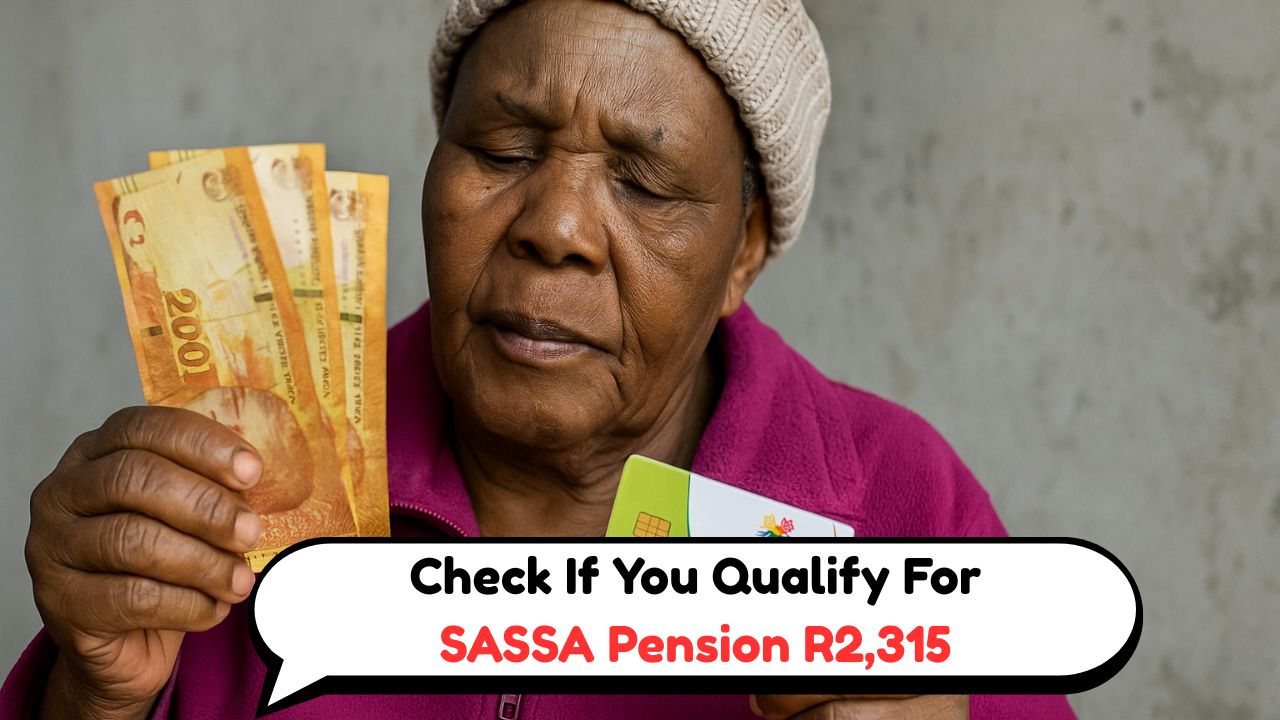SASSA Pension Grant Payments: The South African Social Security Agency (SASSA) has announced the commencement of the pension grant payments amounting to R2,315 this September. This initiative is a vital lifeline for many elderly South Africans, ensuring they receive financial support to cover essential living expenses. With the rising cost of living, these payments play a crucial role in sustaining the well-being of pensioners across the nation. As the population ages, the importance of timely and adequate pension disbursements becomes ever more significant. Understanding the eligibility criteria and the process involved is essential for those hoping to benefit from this program.
Eligibility Criteria for SASSA Pension Grant Payments
Understanding who qualifies for the SASSA pension grant is essential for any South African hoping to receive this financial support. Applicants must be South African citizens, permanent residents, or refugees living in South Africa. The age requirement stipulates that male applicants must be 65 years or older, while female applicants are eligible from the age of 60. Additionally, the grant is means-tested, meaning that the applicant’s financial situation is assessed to determine eligibility. The applicant must not be receiving any other social grant for themselves, with the exception of the child support grant. Furthermore, applicants must not be cared for in a state institution. These criteria ensure that the pension grant reaches those who are most in need, providing a safety net for the elderly who may not have other forms of income.
Application Process for SASSA Pension Grant
Applying for the SASSA pension grant involves several steps, and it is important to follow these carefully to ensure a successful application. Prospective beneficiaries need to visit their nearest SASSA office with the necessary documentation, which includes a South African ID, proof of residence, and evidence of income and assets. Once these documents are submitted, the application is processed, and the applicant is informed of the outcome. It is advisable for applicants to keep a copy of the application and all supporting documents for their records. The processing time can vary, but SASSA aims to communicate decisions as promptly as possible. If an application is unsuccessful, applicants have the right to appeal the decision. SASSA provides guidance on how to make an appeal, ensuring that everyone has a fair chance to receive the support they need.
Receiving Your SASSA Pension Grant Payments
Once approved for the SASSA pension grant, beneficiaries can expect regular payments to help them manage their daily expenses. The grant amount of R2,315 is paid monthly, and recipients can choose how they wish to receive their payments. Options include direct deposits into a bank account, collecting the money from designated pay points, or using the SASSA card system. The latter is a popular choice, as it provides beneficiaries with the flexibility to withdraw cash or make purchases directly. It is important for beneficiaries to monitor their payments and report any discrepancies to SASSA immediately. Staying informed and proactive about one’s grant can prevent potential issues and ensure that the financial aid is consistently received.
Impact of SASSA Pension Grant on South African Communities
The SASSA pension grant is not just a financial benefit for individuals; it has a broader impact on communities across South Africa. By providing a stable source of income to the elderly, it alleviates poverty and enhances the quality of life for many families. The grant often supports entire households, contributing to the education and well-being of younger generations. Moreover, it stimulates local economies as beneficiaries spend their grants on goods and services within their communities. This circulation of funds is crucial for small businesses and contributes to economic growth. The SASSA pension grant plays a significant role in reducing inequality and promoting social cohesion, making it a cornerstone of South Africa’s social welfare system.

